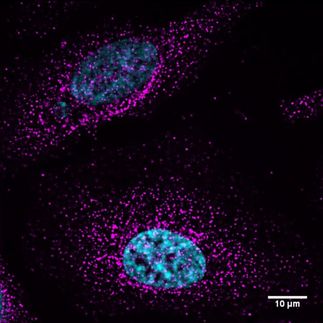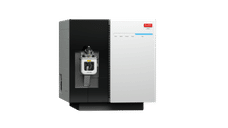Matritech Presents Improved Method for Detecting the NMP66(TM) Complex in the Blood of Women with Breast Cancer
Advertisement
Matritech presented an improved method of detecting the NMP66(TM) nuclear matrix protein complex in serum from women with breast cancer. Matritech scientists have developed several methods to detect the NMP66 complex in serum including an immunoassay and a Reverse Transcriptase-Polymerase Chain Reaction (RT-PCR) procedure. The scientists have continued to work on assay optimization including the development of methods to increase the sensitivity of the immunoassay.
The new concentration method employed an anti-sense affinity capture (AAC) procedure. The AAC method was used in a proof of concept study comparing samples from women with no breast disease to women with breast cancer. After the samples underwent the AAC concentration step, they were tested by RT-PCR. In a cohort of eight specimens, the NMP66 complex was found in each cancer patient and was absent in each of the healthy subjects. Matritech scientists plan to test additional samples using the combination of the AAC-concentration method and the NMP66 immunoassay.
The NMP66 breast cancer program in development is based on Matritech's proprietary nuclear matrix protein (NMP) technology. NMPs comprise the protein framework that organizes DNA inside the cell. They change in amount in cancerous cells, making them excellent markers for a variety of cancers. NMPs are found in body fluids, are highly accurate and can be detected in a minimally invasive manner. Matritech scientists, using a research mass spectrometer, discovered the existence of certain proteins (NMP66) in the blood of breast cancer patients that were generally not present in the blood of women without detectable breast malignancy.
Other news from the department research and development
These products might interest you
Most read news
More news from our other portals
See the theme worlds for related content
Topic World Mass Spectrometry
Mass spectrometry enables us to detect and identify molecules and reveal their structure. Whether in chemistry, biochemistry or forensics - mass spectrometry opens up unexpected insights into the composition of our world. Immerse yourself in the fascinating world of mass spectrometry!

Topic World Mass Spectrometry
Mass spectrometry enables us to detect and identify molecules and reveal their structure. Whether in chemistry, biochemistry or forensics - mass spectrometry opens up unexpected insights into the composition of our world. Immerse yourself in the fascinating world of mass spectrometry!

























































